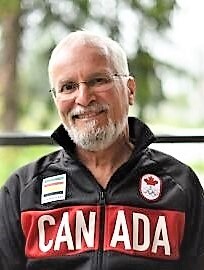 As the head coach of Racewalk West, Gerry Dragomir (MHPCTL 2021) coaches four international-level racewalk athletes. One of those athletes is fellow KIN Alum, Evan Dunfee (BKin 2014), who won the Bronze Medal for the men’s 50km walk at the 2020 Tokyo Olympic Games. “One day Evan showed up to practice with his teenage brother, who was working with our group at the time. It did not take long for Evan to show his true intentions about the racewalk and we have been conquering the world ever since,” remarks Gerry. His third time at the Olympics was certainly the charm for Gerry when he served as a coach at the 2020 Tokyo Olympics to help Evan win his first Olympic medal.
As the head coach of Racewalk West, Gerry Dragomir (MHPCTL 2021) coaches four international-level racewalk athletes. One of those athletes is fellow KIN Alum, Evan Dunfee (BKin 2014), who won the Bronze Medal for the men’s 50km walk at the 2020 Tokyo Olympic Games. “One day Evan showed up to practice with his teenage brother, who was working with our group at the time. It did not take long for Evan to show his true intentions about the racewalk and we have been conquering the world ever since,” remarks Gerry. His third time at the Olympics was certainly the charm for Gerry when he served as a coach at the 2020 Tokyo Olympics to help Evan win his first Olympic medal.
However, the pre-event did not go as smoothly as he had hoped. “We did not actually partake in the 2020 Games in Tokyo because our event was moved to Sapporo,” notes Gerry, “[so] COVID-19 made for a rather unloving partner this time around.” Nonetheless, “Evan’s event was everything [they] had hoped for” and “it was all [in] great fun.” Despite his coaching achievements and merits, Gerry credits his role model, Joanne Fox, and his mentor, Peter Ericksson, for helping him become the coach he is today. “The responsibility for coaching racewalk athletes squarely rests on Joanne Fox, the principal of UBC Vantage College. She was my racewalk coach in 1999 as she studied for her doctorate. It was her inspiration and enthusiasm that brought me on this fascinating journey. Former head coach of Athletics Canada Peter Ericksson was one of the people who helped Evan and me, make the turn from international participants to world-class performers.”
Before participating in the 2020 Olympics, Gerry had begun the professional Master’s program in High Performance and Technical Leadership (MHPCTL) at the UBC School of Kinesiology. He graduated in 2021, so he has yet to see how the program has helped him hone his coaching skills: “I have not made up my mind yet about what the HPCTL program is to me. However, skill-honing was at the top of my list.” Gerry further explains how having previous coaching experience is critical to developing skills and succeeding in this program. “A lot of what you learn in HPCTL requires you to tap into that experience. The coach’s existing body of knowledge is recast into an evidence-based structure that can be measured, assessed, analysed, and improved on a continuous basis. This is the essence of Kaizen [or changing for the better] … [and] the program is built upon a coaching process that prioritizes continuous improvement.”
The School offers many exciting courses on coaching and technical leadership, but Program Director and professor Dr. Maria Gallo’s course on High Performance Sport Inquiry was the highlight of the program for Gerry. “Although I highly enjoyed other courses, 596 was the meat of the HPCTL sandwich. Taking part in a research project allowed me to exchange a massive amount of knowledge with my class, as well as gain new understandings of the coaching environment. I find that pretty special and exciting!” In addition to this course, Gerry notes KIN 517, Business of High-Performance Sport in Canada, as one of his more beneficial classes. He used to “[work] with NPO organizations as a public practicing accountant for over 35 years” and enrolling in KIN 517 ignited “a new area of interest [for him] when preparing a paper on “Sport for Development in Indigenous Communities in Canada.”
Gerry strongly encourages anyone involved in coaching to join the program, but he provides a word of advice for those interested: “Commit fully, and without reservation, to HPCTL. Half measures in this program are useless, so you will be disappointed if you do not take full advantage of what the program has to offer. It is helpful if you have a couple of Olympic cycles of hands-on coaching experience (just the 4-year cycles are important, not necessarily the actual Games).” After graduating from the MHPCTL program, Gerry hopes to “complete a doctoral degree in the near future” and eventually conduct a documentary on his “40+ year-long career as a sports coach.”
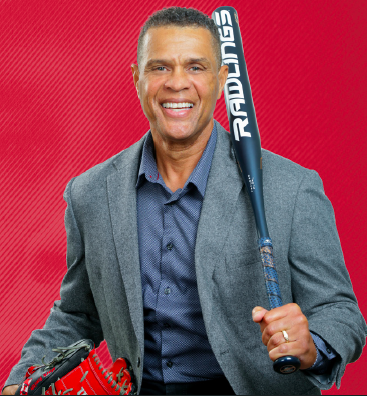 Mark Smith (HPCTL 2020) is an experienced, highly regarded fastpitch softball coach with many accolades and awards under his belt. With 25 years of experience, he decided to enroll in the School of Kinesiology’s professional coaching program in High Performance and Technical Leadership. “I had reached a point where I felt I was no longer growing and being challenged as a coach. I wanted an opportunity to be pushed and be exposed to other perspectives. In the end, it was that and more. I recognized quickly there is no downside to learning – that to be in classes with like-minded people, where everyone is eager to improve themselves and grow their knowledge helped me enhance my coaching skills,” recounts Mark. He goes on to state that he found the entire learning process to be helpful: “In some areas I brought past experience, but I learned some new skills and enhanced others. I may not have learned a great deal about coaching science before joining the program, my prior knowledge and experience were validated by my instructors and peers, encouraging me to learn and assist my fellow classmates on their learning journey.”
Mark Smith (HPCTL 2020) is an experienced, highly regarded fastpitch softball coach with many accolades and awards under his belt. With 25 years of experience, he decided to enroll in the School of Kinesiology’s professional coaching program in High Performance and Technical Leadership. “I had reached a point where I felt I was no longer growing and being challenged as a coach. I wanted an opportunity to be pushed and be exposed to other perspectives. In the end, it was that and more. I recognized quickly there is no downside to learning – that to be in classes with like-minded people, where everyone is eager to improve themselves and grow their knowledge helped me enhance my coaching skills,” recounts Mark. He goes on to state that he found the entire learning process to be helpful: “In some areas I brought past experience, but I learned some new skills and enhanced others. I may not have learned a great deal about coaching science before joining the program, my prior knowledge and experience were validated by my instructors and peers, encouraging me to learn and assist my fellow classmates on their learning journey.”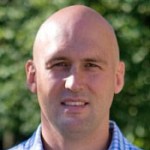

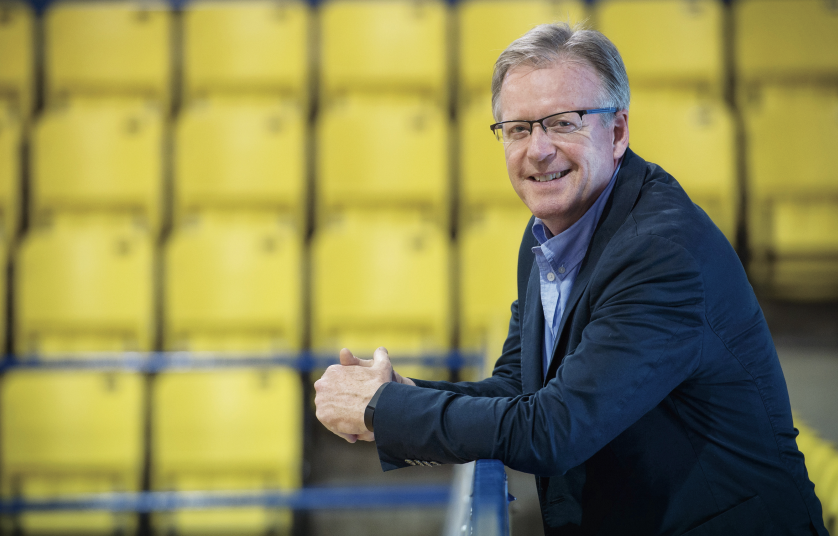 Congratulations to professor Robert Boushel, Director of the UBC School of Kinesiology, on receiving the 2021 Spirit Award in Excellence in Partnership from the
Congratulations to professor Robert Boushel, Director of the UBC School of Kinesiology, on receiving the 2021 Spirit Award in Excellence in Partnership from the 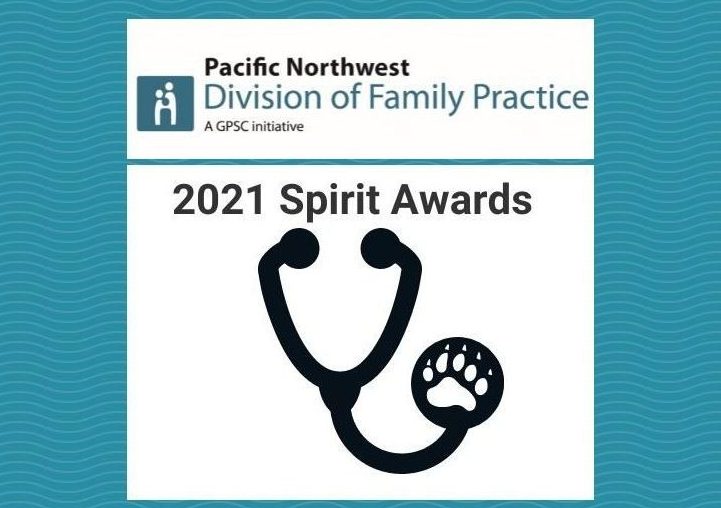 Dr. Boushel was recognized for his visionary leadership supporting exercise and diet intervention directly into primary care practice. The Pacific Northwest Primary Care Network (PCN) is the first in the province, and country, to officially recognize kinesiologists in team-based health care professions.
Dr. Boushel was recognized for his visionary leadership supporting exercise and diet intervention directly into primary care practice. The Pacific Northwest Primary Care Network (PCN) is the first in the province, and country, to officially recognize kinesiologists in team-based health care professions.
 Campus KINnections is a peer mentorship program that pairs upper-year students with first-year and transfer students in Kinesiology for a year-long partnership. The initiative aims to provide incoming Kinesiology students with resources, support, and guidance to ensure a smooth transition into UBC Kin. Throughout the year, students will meet virtually and in person at Campus KINnection events designed to foster a sense of community and strengthen the bond between mentors and mentees. A few events you can expect to see this year include games nights, skating, movie nights, and more!
Campus KINnections is a peer mentorship program that pairs upper-year students with first-year and transfer students in Kinesiology for a year-long partnership. The initiative aims to provide incoming Kinesiology students with resources, support, and guidance to ensure a smooth transition into UBC Kin. Throughout the year, students will meet virtually and in person at Campus KINnection events designed to foster a sense of community and strengthen the bond between mentors and mentees. A few events you can expect to see this year include games nights, skating, movie nights, and more!  Hi, my name is Tanvi! I am in the Bachelor of Kinesiology and Master of Management program, specializing in Social and Behavioural Sciences. I have recently moved to Vancouver from Edmonton, Alberta. There, I was fortunate to have the opportunity to work with young children as a camp counsellor, high school students as the Secretary-General of a high school Model United Nations club, geriatric patients as a recreational aide, and orthopedic patients as an orthopedic social activities leader. I also worked as a receptionist/physiotherapy aide with a panel of esteemed physiotherapists. This was an incredible insight into the field I one day hope to enter! Right now, I am looking forward to starting my role as a fitness leader with the Active Aging Institute. What I am most excited about, however, is my upcoming work with the Campus Kinnections program.
Hi, my name is Tanvi! I am in the Bachelor of Kinesiology and Master of Management program, specializing in Social and Behavioural Sciences. I have recently moved to Vancouver from Edmonton, Alberta. There, I was fortunate to have the opportunity to work with young children as a camp counsellor, high school students as the Secretary-General of a high school Model United Nations club, geriatric patients as a recreational aide, and orthopedic patients as an orthopedic social activities leader. I also worked as a receptionist/physiotherapy aide with a panel of esteemed physiotherapists. This was an incredible insight into the field I one day hope to enter! Right now, I am looking forward to starting my role as a fitness leader with the Active Aging Institute. What I am most excited about, however, is my upcoming work with the Campus Kinnections program. 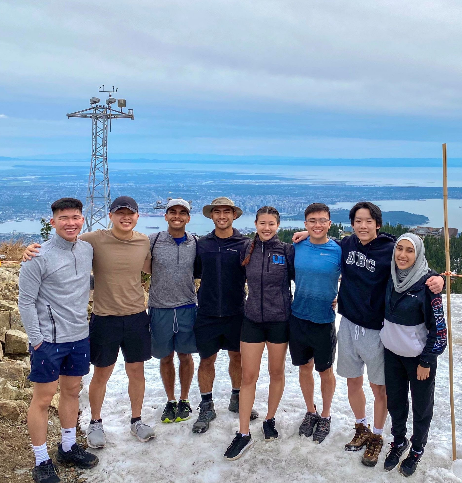 Hello everyone! My name is Nicholas Feng, and I am a 2nd-year undergrad Kinesiology student in the Neuromechanical and Physiological Sciences Stream. This year, I will be working as the communications coordinator for “Campus Kinnections,” a program that pairs upper-year students with first-year and transfer students in Kinesiology. I joined Campus Kinnections to provide incoming students to the UBC community a sense of belonging and knowledge that upper-year students can provide, whether that be academic, personal, or a friendly face on campus to connect and communicate. This opportunity allows both mentors and mentees to learn more about their fellow Kinesiology students, and to develop their interests, skills, and qualities.
Hello everyone! My name is Nicholas Feng, and I am a 2nd-year undergrad Kinesiology student in the Neuromechanical and Physiological Sciences Stream. This year, I will be working as the communications coordinator for “Campus Kinnections,” a program that pairs upper-year students with first-year and transfer students in Kinesiology. I joined Campus Kinnections to provide incoming students to the UBC community a sense of belonging and knowledge that upper-year students can provide, whether that be academic, personal, or a friendly face on campus to connect and communicate. This opportunity allows both mentors and mentees to learn more about their fellow Kinesiology students, and to develop their interests, skills, and qualities.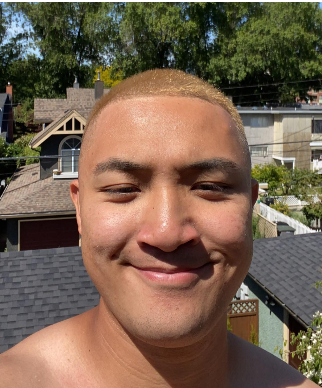 Hi, my name is Andrew, I am the Associate Director of Campus Kinnections. I am a fourth year student in the education stream. I was the VP Student Life for 2020-2021. Within Campus Kinnections, I will be overseeing logistics as well as planning and promoting fun events. I joined this program to be more involved in the lives of first year students. I want to guide students in valuing their education while making new friends and attending fun events. The goal of the program is to create long lasting relationships between upper and lower year students.
Hi, my name is Andrew, I am the Associate Director of Campus Kinnections. I am a fourth year student in the education stream. I was the VP Student Life for 2020-2021. Within Campus Kinnections, I will be overseeing logistics as well as planning and promoting fun events. I joined this program to be more involved in the lives of first year students. I want to guide students in valuing their education while making new friends and attending fun events. The goal of the program is to create long lasting relationships between upper and lower year students. 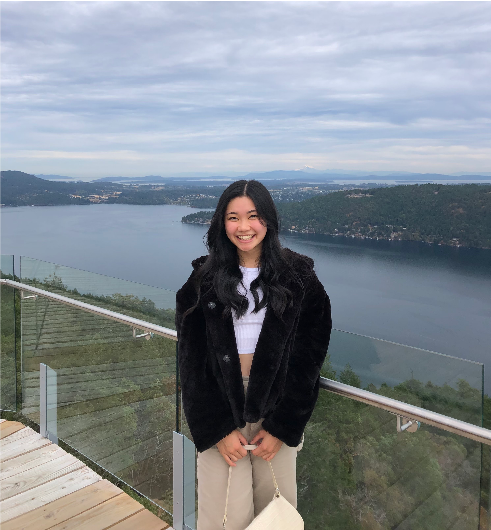 Hello! My name is Alexia, and I’m a fourth-year undergraduate Kinesiology student in the interdisciplinary stream. I’m the director of “Campus KINnections” this year, which is a peer mentorship program in the KUS that pairs upper-year students with first-year and transfer students in Kinesiology. Campus KINnections provides students new to UBC Kinesiology with resources, tips and tricks, and a familiar face within the faculty to guide them through a smooth transition into the program, especially as we move back to in-person learning this year. The program also provides upper-year students with the opportunity to develop leadership and mentorship skills in a year-long pairing with their mentees.
Hello! My name is Alexia, and I’m a fourth-year undergraduate Kinesiology student in the interdisciplinary stream. I’m the director of “Campus KINnections” this year, which is a peer mentorship program in the KUS that pairs upper-year students with first-year and transfer students in Kinesiology. Campus KINnections provides students new to UBC Kinesiology with resources, tips and tricks, and a familiar face within the faculty to guide them through a smooth transition into the program, especially as we move back to in-person learning this year. The program also provides upper-year students with the opportunity to develop leadership and mentorship skills in a year-long pairing with their mentees. 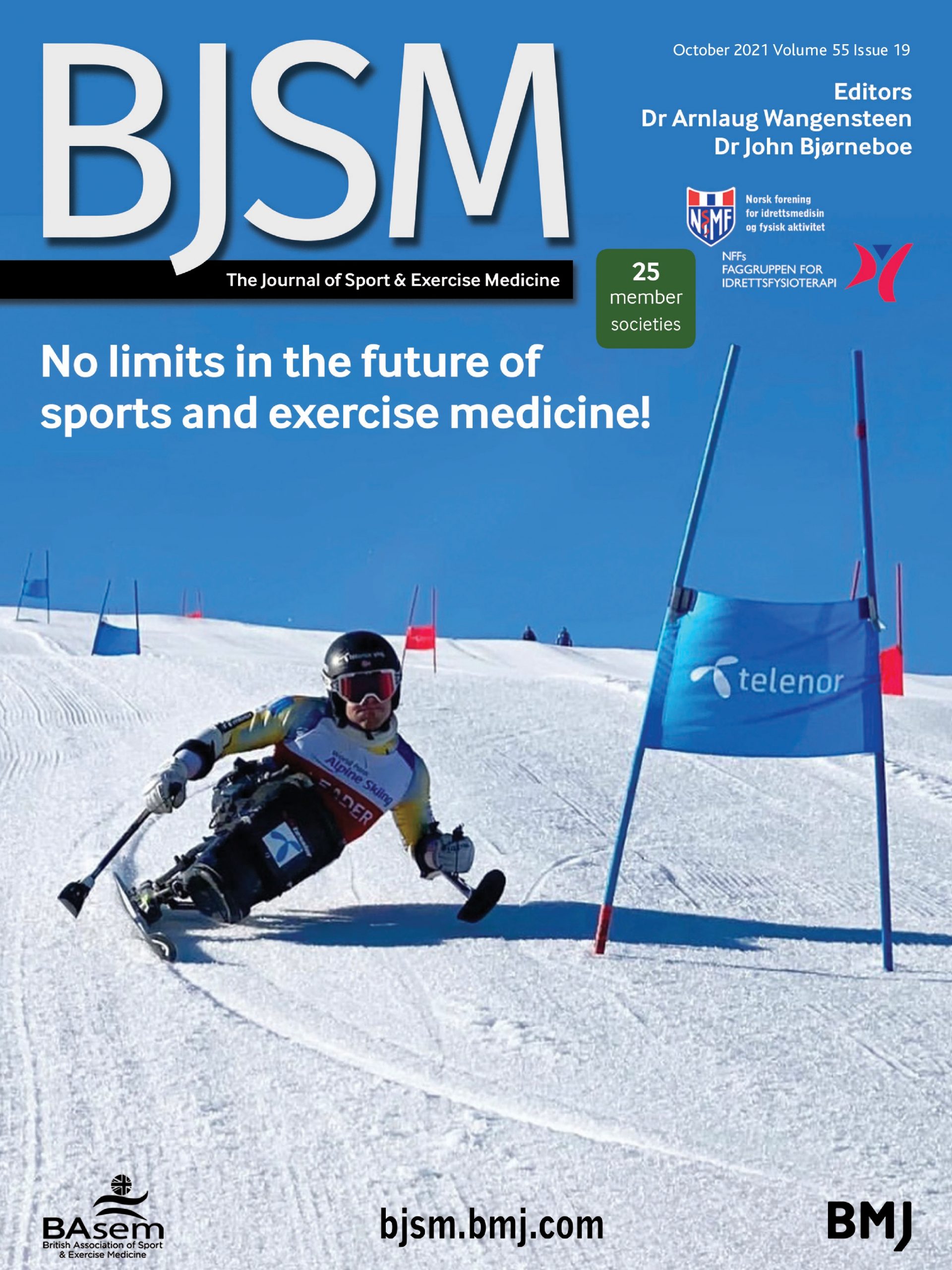 New findings: COVID-19 Pandemic and Exercise (COPE) trial: a multigroup pragmatic randomised controlled trial examining effects of app-based at-home exercise programs on depressive symptoms. Congratulations to Drs. Eli Puterman, Mark Beauchamp, Michael Koehle and to Benjamin Hives, Nicole Grishin, Nicole Mazara, Stacy Hutton, and Nicole Mazara for their new paper published by the British Journal for Sports Medicine.
New findings: COVID-19 Pandemic and Exercise (COPE) trial: a multigroup pragmatic randomised controlled trial examining effects of app-based at-home exercise programs on depressive symptoms. Congratulations to Drs. Eli Puterman, Mark Beauchamp, Michael Koehle and to Benjamin Hives, Nicole Grishin, Nicole Mazara, Stacy Hutton, and Nicole Mazara for their new paper published by the British Journal for Sports Medicine.